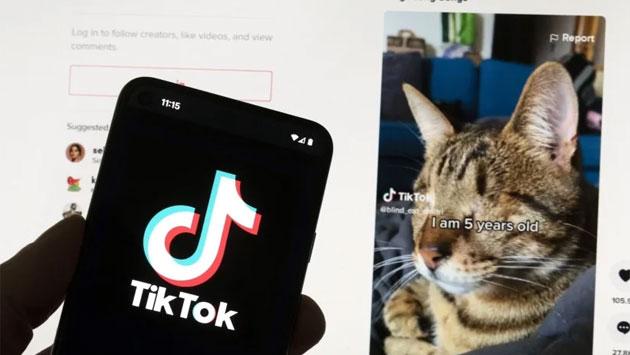Reply To:
Name - Reply Comment
 ByteDance, the owner of global hit short video platform TikTok, has lost a legal challenge that sought to reverse a European Union decision stating that the firm should not favour its own service over rivals.
ByteDance, the owner of global hit short video platform TikTok, has lost a legal challenge that sought to reverse a European Union decision stating that the firm should not favour its own service over rivals.
In a ruling on Wednesday, the EU General Court said it “dismissed ByteDance’s action” seeking to avoid it being designated as a “gatekeeper” under the Digital Markets Act (DMA), which took effect in March.
The gatekeeper label, which applies to six other tech giants – Google owner Alphabet, Facebook operator Meta Platforms, Apple, Amazon.com, Microsoft and Booking, which runs online travel agency Booking.com – prohibits a company from self-preferencing, combining personal data across services without consent, or preventing users from uninstalling pre-installed applications.
The European Commission estimated that the annual cost for such compliance will be 1.41 million euros (US$1.5 million) per platform. Breaches would lead to fines of up to 10 per cent of the company’s total worldwide turnover, which can be increased to 20 per cent in case of repeated infringements.
ByteDance, the only Chinese company designated a gatekeeper, initiated legal action in November, arguing that its valuation mainly resulted from its businesses in China, where it operates TikTok’s local version Douyin and news aggregator Jinri Toutiao, and that the scale of TikTok was smaller than some other social-networking sites such as Facebook and Instagram.
The court said ByteDance “met the quantitative thresholds laid down in the DMA”, including the number of users, and that “TikTok had succeeded in increasing its number of users very rapidly and exponentially” with “a particularly high engagement rate”.
The gatekeeper label applies to a platform that has had more than 45 million monthly active users in the past year, and has achieved an annual turnover of at least 7.5 billion euros in each of the past three years, according to DMA.
TikTok has reported that its monthly active users in the EU rose to an average of 134 million between February 2023 and July 2023, from 125 million half a year earlier. ByteDance, still privately owned, does not regularly disclose its financials. Bloomberg News reported that the firm’s pre-tax profit grew 60 per cent to US$40 billion last year.
ByteDance and TikTok did not immediately respond to a request for comment on Friday. The company can appeal to the European Court of Justice, the region’s supreme court.
“Although the new rules apply only within the 27-member EU, other democracies could follow suit and write the next chapter of the vaunted ‘Brussels effect’, turning the DMA into a global standard,” Bill Echikson, a senior fellow with the Centre for European Policy Analysis, said in a February report.
The EU has one of the world’s strictest antitrust laws covering Big Tech. Last month, Apple was accused of violating the DMA by preventing app developers from freely directing users to cheaper alternatives. In March, the EU slapped fines of 1.8 billion euros on Apple for impeding other music streaming services, a decision that was later challenged by the American giant.
In February, the EU announced an investigation into TikTok over child-protection measures on the platform.(SCMP)